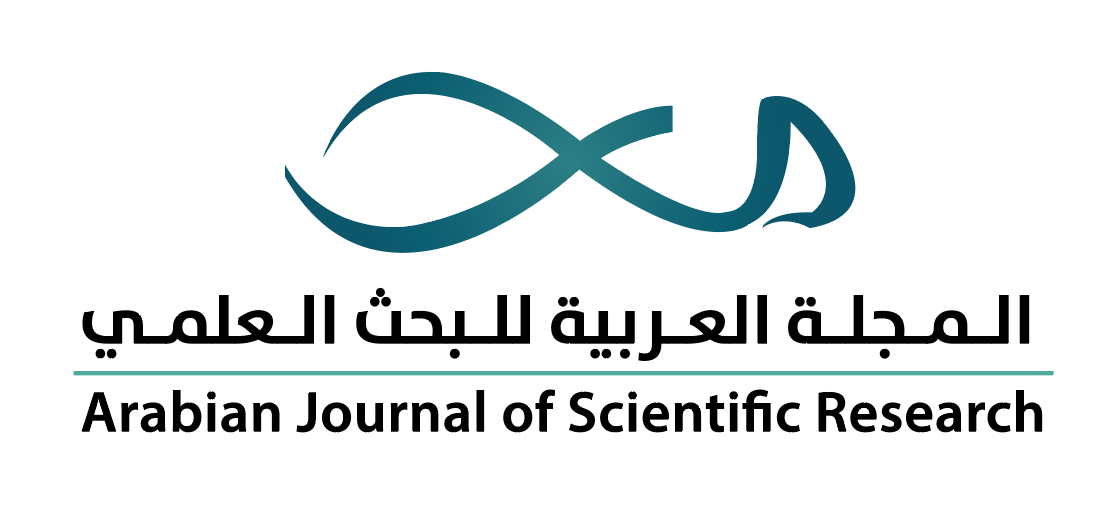-
oa الحوسبة الكمومية، المفاهيم الأساسية والدارات المنطقية الكمومية
- Source: Arabian Journal of Scientific Research-المجلة العربية للبحث العلمي, Volume 1(2020), Issue 1, Feb 2020,
-
- 27 July 2019
- 23 December 2019
- 28 February 2020
- Previous Article
- Table of Contents
- Next Article
Abstract
اﻟﻤﻠﺨﺺ
اﻟﻜﻤﺒﻴﻮﺗﺮ اﻟﻜﻤﻮﻣﻲ ﻫﻮ ﻛﻤﺒﻴﻮﺗﺮ ﻳﺤﺎﻛﻲ ﻣﻨﻈﻮﻣﺔ اﻟﺤﺴﺎﺑﺎت ﻓﻲ اﻟﻔﻴﺰﻳﺎء اﻟﻜﻤﻮﻣﻴﺔ، ﺑﺤﻴﺚ ﻳﺘﻢ إﻋﺎدة ﺑﻨﺎء دارات وﺑﻮاﺑﺎت اﻟﻜﻤﺒﻴﻮﺗﺮ اﻟﻜﻼﺳﻴﻜﻲ اﻋﺘﻤﺎدًا ﻋﻠﻰ ﻣﺴﺎﺋﻞ وﺧﻮارزﻣﻴﺎت اﻟﻔﻴﺰﻳﺎء اﻟﻜﻤﻮﻣﻴﺔ اﻟﻐﺮﻳﺒﺔ واﻟﻤﺪﻫﺸﺔ. اﻟﻜﻔﺎءة اﻟﻨﻈﺮﻳﺔ ﻟﻠﻔﻴﺰﻳﺎء اﻟﻜﻤﻮﻣﻴﺔ ﻓﻲ ﺣﻞ اﻟﻜﺜﻴﺮ ﻣﻦ اﻷﻟﻐﺎز اﻟﻔﻴﺰﻳﺎﺋﻴﺔ ﻓﻲ اﻟﻌﺼﺮ اﻟﺤﺪﻳﺚ، وﺗﻮﻗﻌﺎﺗﻬﺎ اﻟﻤﺒﻜﺮة ﻻﻛﺘﺸﺎف ﺧﻮارزﻣﻴﺔ ﻛﻤﻮﻣﻴﺔ ﺗﻔﻴﺪ ﻏﺮض اﻟﺘﻄﻮر اﻟﻜﺒﻴﺮ ﻓﻲ ﻋﺎﻟﻢ اﻟﻜﻤﺒﻴﻮﺗﺮ، ﻗﺎدﺗﺎ اﻟﻜﺜﻴﺮ ﻣﻦ اﻟﻌﻠﻤﺎء إﻟﻰ اﻟﻌﻤﻞ اﻟﺘﻄﺒﻴﻘﻲ ﻋﻠﻰ ﻧﻤﺎذج ﻣﺨﺒﺮﻳﺔ ﻟﻠﺒﻮاﺑﺎت اﻟﻤﻨﻄﻘﻴﺔ ﻛﻤﻮﻣﻴًﺎ ﺗﺘﺠﺎوز ﺗﻠﻚ اﻟﻤﺼﻤﻤﺔ اﻋﺘﻤﺎدًا ﻋﻠﻰ أﻧﺼﺎف اﻟﻨﻮاﻗﻞ واﻟﻔﻴﺰﻳﺎء اﻟﻜﻼﺳﻴﻜﻴﺔ، اﻟﺘﻲ ﺑﻘﻴﺖ ﺗﻌﻤﻞ ﺑﻜﻔﺎءة ﻋﺎﻟﻴﺔ ﻓﻲ اﻟﻜﻤﺒﻴﻮﺗﺮ اﻟﺘﻘﻠﻴﺪي ﺣﺘﻰ ﺑﻠﻮغ اﻟﺘﺮاﻧﺰﺳﺘﻮرات ﻓﻲ وﺣﺪة اﻟﻤﺴﺎﺣﺔ ﻓﻲ اﻟﺪارات اﻟﺮﻗﻤﻴﺔ اﻹﻟﻜﺘﺮوﻧﻴﺔ اﻟﻤﺴﺘﻮى اﻟﺬري، وﺗﻘﻊ، ﺑﺎﻟﻀﺮورة، ﻓﻲ ﻣﺠﺎل ﻋﻤﻞ اﻟﻔﻴﺰﻳﺎء اﻟﻜﻤﻮﻣﻴﺔ ﺑﺘﻔﻮق. ﻓﻲ ﻫﺬه اﻟﺪراﺳﺔ، ﻧﺘﺘﺒّﻊ أﺷﻬﺮ اﻟﺨﻮارزﻣﻴﺎت واﻟﺒﻮاﺑﺎت اﻟﻤﻨﻄﻘﻴﺔ اﻟﻜﻤﻮﻣﻴﺔ اﻟﺘﻲ ﻳﺘﻢ اﻟﻌﻤﻞ ﻋﻠﻰ ﺗﺼﻤﻴﻤﻬﺎ ﻧﻈﺮﻳًﺎ وﻣﺨﺒﺮﻳًﺎ، ﻣﺮورًا ﻋﻠﻰ اﻟﻤﻔﺎﻫﻴﻢ اﻷﺳﺎﺳﻴﺔ اﻟﻤﻌﺘﻤﺪة ﻟﺒﻨﺎء ﻫﺬه اﻟﻤﻨﻈﻮﻣﺔ ﻛﺎﻟﺘﺸﺎﺑﻚ واﻟﺘﺮاﺑﻂ اﻟﻜﻤﻮﻣﻲ، واﻟﺘﺪاﺧﻞ اﻟﻜﻤﻮﻣﻲ واﻟﻜﻴﻮﺑﺖ. وﻓﻲ ﺧﺎﺗﻤﺔ اﻟﺪراﺳﺔ، ﻧﻮﺻﻲ وﻧﺘﺮﻗﺐ اﻟﻌﻤﻞ ﻋﻠﻰ ﺗﺸﻜﻴﻞ ﻓﺮﻳﻖ ﻋﻤﻞ ﻋﻠﻤﻲ ﻋﺮﺑﻲ ﻳﺒﺤﺚ ﻋﻤﻴﻘًﺎ ﻓﻲ إﻣﻜﺎﻧﻴﺔ وﻟﻮج ﻫﺬه اﻟﻌﻠﻮم اﻟﻌﺼﺮﻳﺔ ﻣﻦ زاوﻳﺘﻴﻬﺎ اﻟﻨﻈﺮﻳﺔ واﻟﺘﻘﻨﻴﺔ
Quantum Computer is a computer that simulates the system of calculations, circuits and logical gates in the classic computer based on quantum physics. The theoretical quantum physics efficiency at solving many complicated physical problems in modern times and its early predictions of discovering quantum algorithm benefiting the development in the computer world, have led many scientists to work on the quantum logic gates theoretically and laboratory.
In this paper, we discussed designing quantum algorithms theoretically and experimentally in the laboratory. Moreover, we presented the quantum basic concepts and principles contributed to building this system such as quantum entanglement, interference and superposition.
In conclusion, it is strongly recommended, as expected, that Arab scientists and research centers in the Middle East will explore more in depth Quantum Computer Science, theoretically and technically, by forming many working groups in the near future.


